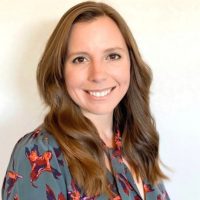
Construction program managers play a vital role in the job site—and not just because they oversee all aspects of project planning and execution. Beyond their responsibilities around job implementation, program managers can heavily influence the culture of the construction site and the broader team.
The best construction program managers not only have the right technical skills, they also possess the drive to empower and uplift their teams.
Charnice Williams, Sr. Construction Program Manager at Microsoft, embodies these characteristics and more. Charnice has had an exciting career journey, to say the least. She served in the U.S. Coast Guard, worked in aerospace, and even the oil and gas sector.
Today, she oversees the project delivery of Microsoft's data centers, ensuring the timely construction and execution of projects.
We recently caught up with Charnice and asked her to share her journey with us. Have a look at what she has to say.
Microsoft, as most people know, is one of the leading tech companies. We produce computer software like Microsoft Office Suite products, consumer electronics similar to our Xbox platform, personal computers, and consumer services like our cloud services.
As for me, I specifically work in our data center delivery group, which is responsible for the complete project delivery of our data centers.
I graduated from North Carolina A&T with a Bachelor's Degree in Civil Engineering. I also graduated from the University of Texas at Austin with a Master's in Engineering Management.
After I transitioned out of the military, I had the opportunity to work in the aerospace industry, oil and gas, and now the tech industry. And I think that's ultimately what contributed to my ability to continue seeking and growing my capabilities and then sharing them with others.
Over the years, I've held various project management roles supporting a vast range of projects that continue to grow in complexity. And this is truly what gave me the skill set to transition into the role I'm in right now, the Senior Construction Program Manager at Microsoft.
The tech industry continues to grow rapidly while facing unique challenges and that is what piqued my interest in Microsoft and my current role.
My proudest accomplishment would be using my influence to change the construction site culture and increase diversity among women in this industry.
That means setting the tone and the standard regarding expectations early on with my general contractor and ensuring I'm fostering a very empathetic environment regarding safety and care for each worker on site.
Construction is typically seen as a masculine and physically demanding industry. But I've had the opportunity to lead weekly “Women in Construction” lunches on my site. This ultimately led to increase unity among the women workers on my site; it built their confidence and allowed them to grow some of their soft skills.
That was exciting for me to see. I saw in real time the culture change from, "Well, this is how it's always been done" to "I think we can do this safer or a little bit more efficiently."
It truly warmed my heart to see that, and it makes me excited for the future of this industry.
Ultimately, our workers on the site are the key to our success. That's why it's a priority for me to ensure they have the proper means to complete their job safely. That's always my proudest accomplishment.
I see this role continuing to be even more essential to the success of projects. Knowing how to navigate ambiguous situations while being a strong leader that can corral and uplift the workforce even when you have moments of contention. That's truly key to success.
The biggest challenge I will face in my role is to continue delivering capacity to my customers rapidly while keeping my workers who are building the physical infrastructure safe and not burning them out.
Technology helps me overcome some of those challenges by, for example, allowing us to conduct virtual safety site walks with my safety leadership team. They can help us identify what good looks like or where we have opportunities to improve. And then, we're able to share that globally throughout our portfolio.
Here's another example: some of our stakeholders are geographically dispersed, so we use our HoloLens technology to quickly and rapidly do scope verification or scope clarification if there are any issues. And this ultimately allows us to continue moving quickly with the project process.
When I look at Autodesk, I see that you have a suite of products that integrate seamlessly together.
Plus, from what I've seen with my other GCs, Autodesk, in your products, is closer to the industry standard. For me, this means more standardization if I work with one GC on one project and another GC on another.
That also minimizes learning curves for new software and products. If I have a minimized learning curve, that assists us in delivering our product quickly and staying organized.
My plans to advance innovation and productivity are to continue enforcing a "Safe Is Fast” message and continue improving the culture throughout my sites. I intend to use my influence to share "What Good Looks Like" throughout our portfolio.
What we're working on now is utilizing and working with Lean Six Sigma practices to increase our productivity and reduce our burden.
My biggest piece of advice for the next generation is always to be willing to learn and be open to listening to different perspectives.
Engineers are some of the most brilliant people I've worked with, but my most significant learnings have come from the frontline workers in the field. Being open and listening to these various perspectives to get a different alternative or path forward is key.
